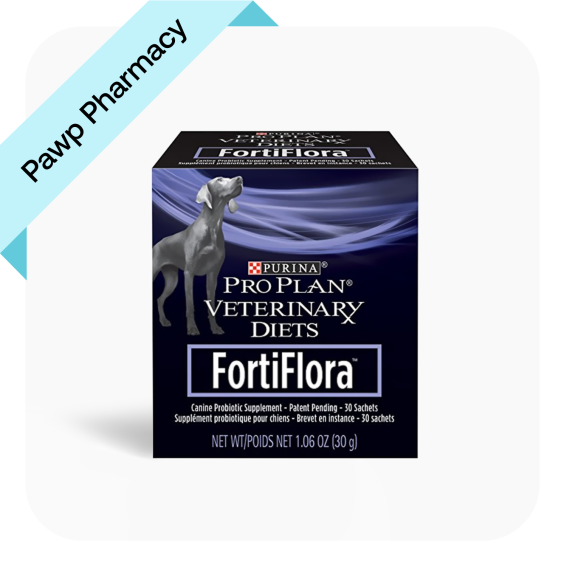When your pup is sick, you want to do everything you can to make them feel better. Sometimes, your veterinarian will prescribe antibiotics if your dog has a bacterial infection or is about to undergo surgery.
Antibiotics do not help, however, if your furry friend has a viral infection, and using antibiotics when they’re not needed can not only cause harm to your pup, but can also contribute to a global health issue called antimicrobial resistance.
Your vet and the experts at Pawp can help you with many ailments affecting your pup, including helping you determine whether or not they need antibiotics. Read on to learn if dogs and humans take the same kind of antibiotics, when your vet may prescribe them, and the best way to give your pup their medication.
Can dogs take human antibiotics?
Your dog can take the majority of antibiotics that humans take for bacterial infections. Any antibiotics you give your pet, however, should be prescribed by your veterinarian.
“We do not recommend just giving any antibiotics to your dog,” says Dr. Yui Shapard. “Giving inappropriate dosage and types of antibiotics to a dog that may or may not need it can create not only issues to the dog's body itself, but can also lead to more resistant bacteria that can prolong the treatment process for your pet, as well as contribute to antimicrobial resistance.”
Antimicrobial resistance occurs when bacteria are able to survive and reproduce even when antibiotic medication is present. This causes antibiotics to become less effective across the board—for both animals and people—and limits the options healthcare providers have for treating people and pets with bacterial infections.
“It's important for pet parents to understand that what may seem like a harmless choice can be detrimental to not only their dog but to their own health, their local community's health, other animals' health, and the global community as a whole,” explains Dr. Shapard.
If your veterinarian determines that your pup’s condition warrants antibiotics, however, you can sometimes have a human pharmacy dispense the medication. In certain parts of the country like New York City, you can also potentially use a compounding pharmacy, which makes pet medications look and taste like treats.
When will vets give out antibiotics?
Veterinarians will prescribe antibiotics when there is strong evidence of a bacterial infection, which they can determine through a physical examination along with testing.
“The current standard of medical practice is to verify the bacterial infection through a culture test, and then prescribe the appropriate antibiotics the bacteria is ‘sensitive’ to,” says Dr. Shapard. “Many bacteria are now ‘resistant’ to common first-line antibiotics like penicillin, amoxicillin, and cephalexin. This means that these antibiotics are no longer effective in treating certain bacterial infections successfully.”
Some common bacterial infections like urinary tract infections, pneumonia, or a deep pyoderma (skin infection) still do well with an oral dose of the first-line antibiotics listed above. If your dog has one of these conditions, these medications will likely be the antibiotics your vet prescribes. Some antibiotics don’t penetrate certain parts of the body, however, which is another reason why your vet must examine your pup and determine the best course of medication to prescribe if antibiotics are needed.
What are the best ways to give your dog antibiotics?
If your vet determines that your dog should have a round of oral antibiotics, the next step is to get them to swallow the medication and try to limit the side effects.
“Most antibiotics can potentially cause some upset stomach, so the golden rule is to always give the medication with some food or on a full stomach,” recommends Dr. Shapard. “For picky dogs, we also often recommend wrapping the antibiotics in a pill-pocket or in peanut butter (just make sure there's no xylitol!). We also often recommend giving probiotics with antibiotics to offset the risk of the antibiotics eliminating good gut flora in the GI tract.”
Probiotics have other benefits as well, such as boosting your pup’s immune system and helping with digestion.

FortiFlora Powder for Dogs$30
Shop Now“Combining antibiotics with probiotics allows for a synergistic effect while the infection is challenging the body's immune system,” says Dr. Shapard. “It's like combining Iron Man with Spider-Man!”
If you think your dog is in need of antibiotics, reach out to the vet team at Pawp and we can help you determine the best course of action.

Reviewed and fact-checked by
Yui Shapard, BVM&S, MRCVS and Medical Director at Pawp
